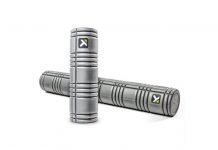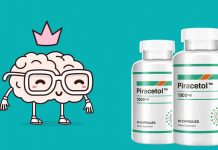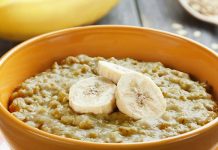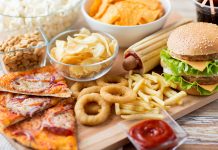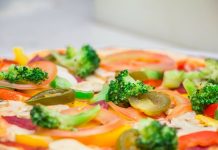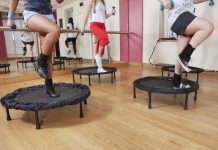
There’s a lot of information on fat loss available to everyone these days thanks to the internet. Unfortunately, the fact that anybody can upload anything on the internet means that there’s as much misinformation as there is useful information.
This is particularly true for the popular topic of bodybuilding and exercise. It’s hard to tell what’s true and what’s not these days because there are so many conflicting opinions available.
One of the more hotly debated ideas that have grown popular in recent years is the idea that working out on an empty stomach will help you to burn more fat. That’s what we’re going to talk about today, and by the end of this article, you’ll be well-equipped to decide for yourself whether you’d prefer to work out on an empty stomach.
Why Would This Affect a Workout?
People all over the globe have been trying to maximize the body’s ability to burn fat. There are tons of ‘solutions’ out there, ranging from different dietary supplements, exercise techniques, and lifestyle changes.
People are trying to find out the best mixture of fat-burning exercise and food/vitamin consumption to boost circulation and create an optimal fat-burning machine.
Now people are beginning to suspect that eating on an empty stomach would positively influence the body’s ability to burn fat. So, who’s right? The athlete who swears to never workout after a meal, or the bulky bodybuilder who has a protein shake before every workout?
So why would anyone do this? What provoked this idea? Apparently, it originated when someone noticed that you can burn a lot more fat if you do some heavy exercise before you have your first meal of the day. There’s more to it than just suspecting that the higher rate of fat burning is due to an empty stomach, though.
Some researchers delved into this problem and realized that your body uses up its carbohydrate stores during the night. Glycogen, which is a form of carbohydrate, is initially used during workouts, but if you attempt to exercise when your body is out of glycogen, its main source of energy won’t be there.
Glycogen is a large part of the reason that people need to work out at a relatively high intensity for about 20 minutes before their body starts burning fat – usually. However, if you don’t have any glycogen stored up, this theory suggests that your body will immediately begin using fat as its main energy source.
However, there’s another side to this coin. If your body doesn’t have any glycogen stored whatsoever, there’s a chance that it might not go straight to the fat burning stage. Instead, it might begin using your muscle mass as energy, a symptom that’s more commonly associated with starvation and nutritional deficiency than a workout.
The pros and cons of working out on an empty stomach
It’s difficult to say with absolute certainty whether working out on an empty stomach is good or bad for you. It depends on your current situation and the constitution of your body. There are pros and cons to this practice.
Pros
- One study did prove that people who work out on an empty stomach burn fat a bit faster. This study was done on 12 men, and compared the results of those who worked out after eating breakfast and those who didn’t. Those who didn’t burn up to 20% more fat than the other group.
In a similar fashion to people who intermittently fast, these men didn’t feel a need to compensate for the caloric difference later in the day. So, they not only burn fat faster but also consumed significantly fewer calories. - Exercising when your glycogen stores are low helps to increase your athletic performance overall because it primes your body to burn fat quickly. This helps to create long-term benefits because your body will be ready to burn fat quickly even when you have eaten lots of carbs.
- Fasting – even fasts as short as just skipping breakfast – encourage your body to develop insulin sensitivity. Insulin is responsible for breaking down carbs and nutrients for the body to use, and if you develop insulin insensitivity due to eating too many carbs, you won’t be able to absorb nutrients and may develop diabetes.
Cons
- Contrary to the study we mentioned earlier, other studies have shown that you can burn fat much quicker if you do have a small snack before your workout.
- Research done at the University of Surrey found that women burn 20% more fat when they consume a small meal before a workout.
- The body needs fuel to become active, so you might not really be able to give it your all if you haven’t eaten anything before your workout. Athletes generally perform best when they have a snack that has a good balance of carbohydrates, proteins, and fat. If you don’t have enough fuel in your body, you might get tired halfway through your workout and feel the need to give up.
In conclusion
All in all, it’s hard to determine whether working out on an empty stomach is good for you or not. You’ll have to try it for yourself to find out – just remember that the practice doesn’t come without risks so take it slowly.
If you do want to find out for yourself, make sure you don’t throw yourself gung-ho into a hardcore workout. Start slow, because you can’t be sure how your body will react to working out without a source of energy.
Also read our review about unique fat burner Instant Knockout >>


